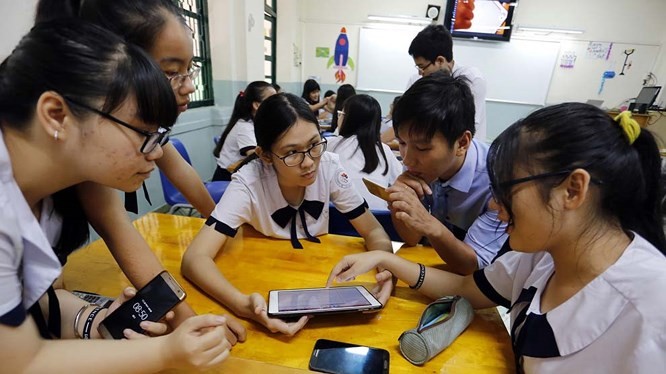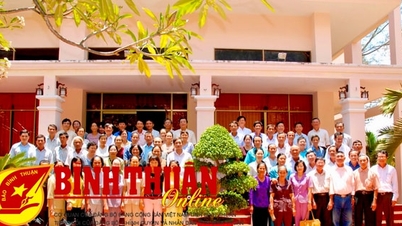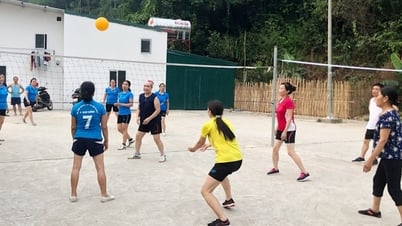Incomplete awareness
Although the National Assembly has issued the 2018 Law on Cyber Security, the Ministry of Information and Communications has issued the 2021 Code of Conduct on Social Networks, and the Government has issued Decree No. 53/2022/ND-CP detailing a number of articles of the Law on Cyber Security, there are still acts of insulting individuals and organizations on social networks.
 |
| Students account for a large proportion of social network users. (Source: dansinh) |
This situation is due to the lack of awareness and compliance with the law among social network participants. It is similar to the habit of using social networks without reading the instructions carefully.
In addition, law enforcement is difficult due to the large scale and global nature of social networks.
In addition, the special reason is that social network participants do not understand correctly about freedom of speech or intentionally misunderstand, taking advantage of freedom of speech to express and share opinions and views that are not in accordance with the provisions of the law, causing damage to the honor, dignity and interests of others.
Freedom of speech is the right of each individual to freely seek, present, and share information, opinions, ideas, and viewpoints. However, freedom of speech must be placed in the relationship between individual rights and responsibilities to the community and society.
Freedom of speech does not mean violating ethics or the law, such as insulting, threatening, harming others, or spreading false information, information affecting national security...
Equip yourself
To become active social network users and contribute to building a healthy social network environment, we need to equip ourselves with certain knowledge and skills.
The first is knowledge of network security. We need to clearly understand the risks and dangers associated with using social networks, such as fraud, viruses, and malware, in order to have measures to protect personal information on social networks.
Second , always check information and think critically when using social networks. It is necessary to raise awareness of verifying the authenticity of information through official and standard sources, not rushing to conclusions, sharing, commenting or arguing about information that is not clearly understood and has not been verified.
Third , be aware of privacy and always maintain a respectful and positive attitude. We need to understand and respect the privacy of ourselves and others on social networks; not engage in cyberbullying; always communicate respectfully and constructively; know how to report acts of infringement, harassment or abuse on social networks and support cases of cyberbullying.
Students account for a large proportion of social network users. Therefore, it is necessary to raise awareness and thinking of students on how to use social networks safely and in compliance with the law.
Accordingly, we need to regularly update teaching content, include in the main or extracurricular training program knowledge about the 2018 Law on Cyber Security, the 2021 Code of Conduct on Social Networks, Decree No. 53/2022/ND-CP detailing a number of articles of the Law on Cyber Security and other relevant regulations.
To do so, it is necessary to have standard and reliable teaching materials to serve the teaching work, such as lecture notes, textbooks, instructional videos...
Or through another channel, regularly organize topics, events, and competitions with content related to social network security and safety, helping to communicate to students.
We need to establish inspirational figures for students about safe and legal use of social media. These could be media ambassadors, such as artists, writers, teachers, or influencers.
Source
































































![[Photo] Prime Minister Pham Minh Chinh talks on the phone with Singaporean Prime Minister Lawrence Wong](https://vphoto.vietnam.vn/thumb/402x226/vietnam/resource/IMAGE/2025/5/8/e2eab082d9bc4fc4a360b28fa0ab94de)





























Comment (0)